The state of a mole of an ideal gas changed from state A at pressure 2P and volume V follows four different processes and finally returns to initial state A reversibly as shown below in the graph. By intercepting the graph answer the following questions:
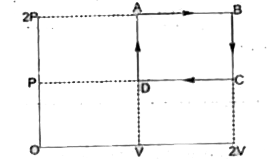
In state D to state A what kind of process is followed?
Isobaric expansion
Isobaric compression
Isochoric process
Isothermal compression
The correct Answer is:C
Topper's Solved these Questions
- THERMODYNAMICS AND THERMOCHEMISTRY BOOK - FIITJEECHAPTER - THERMODYNAMICS AND THERMOCHEMISTRY EXERCISE - ASSIGNMENT PROBLEMS (OBJECTIVE) COMPREHENSION -II
5 Videos
- THERMODYNAMICS AND THERMOCHEMISTRY BOOK - FIITJEECHAPTER - THERMODYNAMICS AND THERMOCHEMISTRY EXERCISE - ASSIGNMENT PROBLEMS (OBJECTIVE) COMPREHENSION -III
6 Videos
- THERMODYNAMICS AND THERMOCHEMISTRY BOOK - FIITJEECHAPTER - THERMODYNAMICS AND THERMOCHEMISTRY EXERCISE - ASSIGNMENT PROBLEMS (OBJECTIVE) LEVEL-II
25 Videos
- TEST PAPERSBOOK - FIITJEECHAPTER - TEST PAPERSEXERCISE - CHEMISTRY
747 Videos
- TRANSITION ELEMENTS & COORDINATION COMPOUNDSBOOK - FIITJEECHAPTER - TRANSITION ELEMENTS & COORDINATION COMPOUNDSEXERCISE - MATCHIG LIST TYPE QUESTIONS
1 Videos
Similar Questions
The state of a mole of an ideal gas changed from state A at pressure 2P and volume V follows four different processes and finally returns to initial state A reversibly as shown below in the graph. By interpreting the graph, answer the following questions.
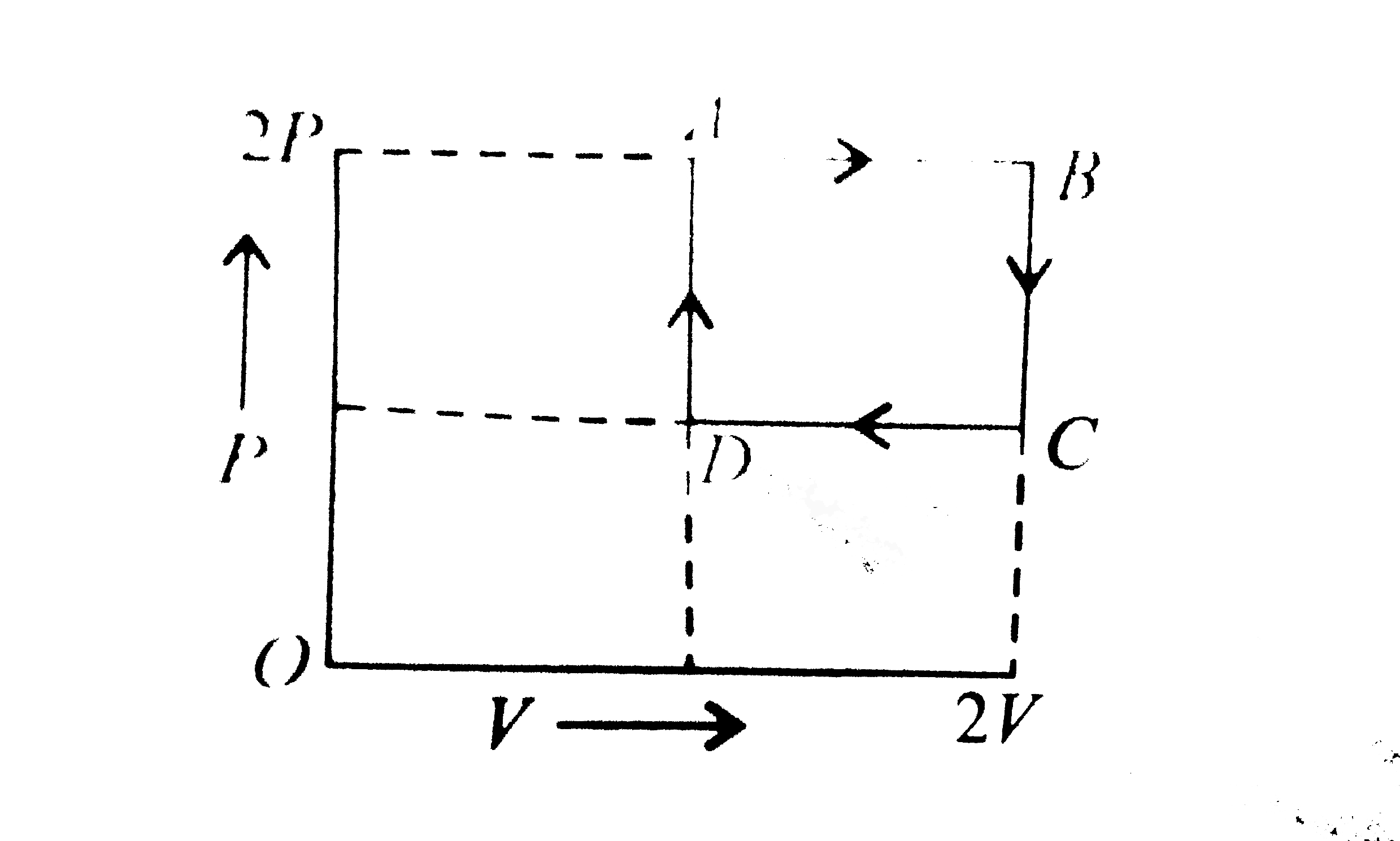
In state D to state A, what kind of process is followed?
View SolutionThe state of a mole of an ideal gas changed from state A at pressure 2P and volume V follows four different processes and finally returns to initial state A reversibly as shown below in the graph. By interpreting the graph, answer the following questions.

In state D to state A, what kind of process is followed?
View Solution
Knowledge Check
The state of a mole of an ideal gas changed from state A at pressure 2P and volume V follows four different processes and finally returns to initial state A reversibly as shown below in the graph. By interpreting the graph, answer the following questions.

In state D to state A, what kind of process is followed?AIsobaric expansionBIsobaric compressionCIsochoric processDIsothermal compressionThe state of a mole of an ideal gas changed from state A at pressure 2P and volume V follows four different processes and finally returns to initial state A reversibly as shown below in the graph. By interpreting the graph, answer the following questions.
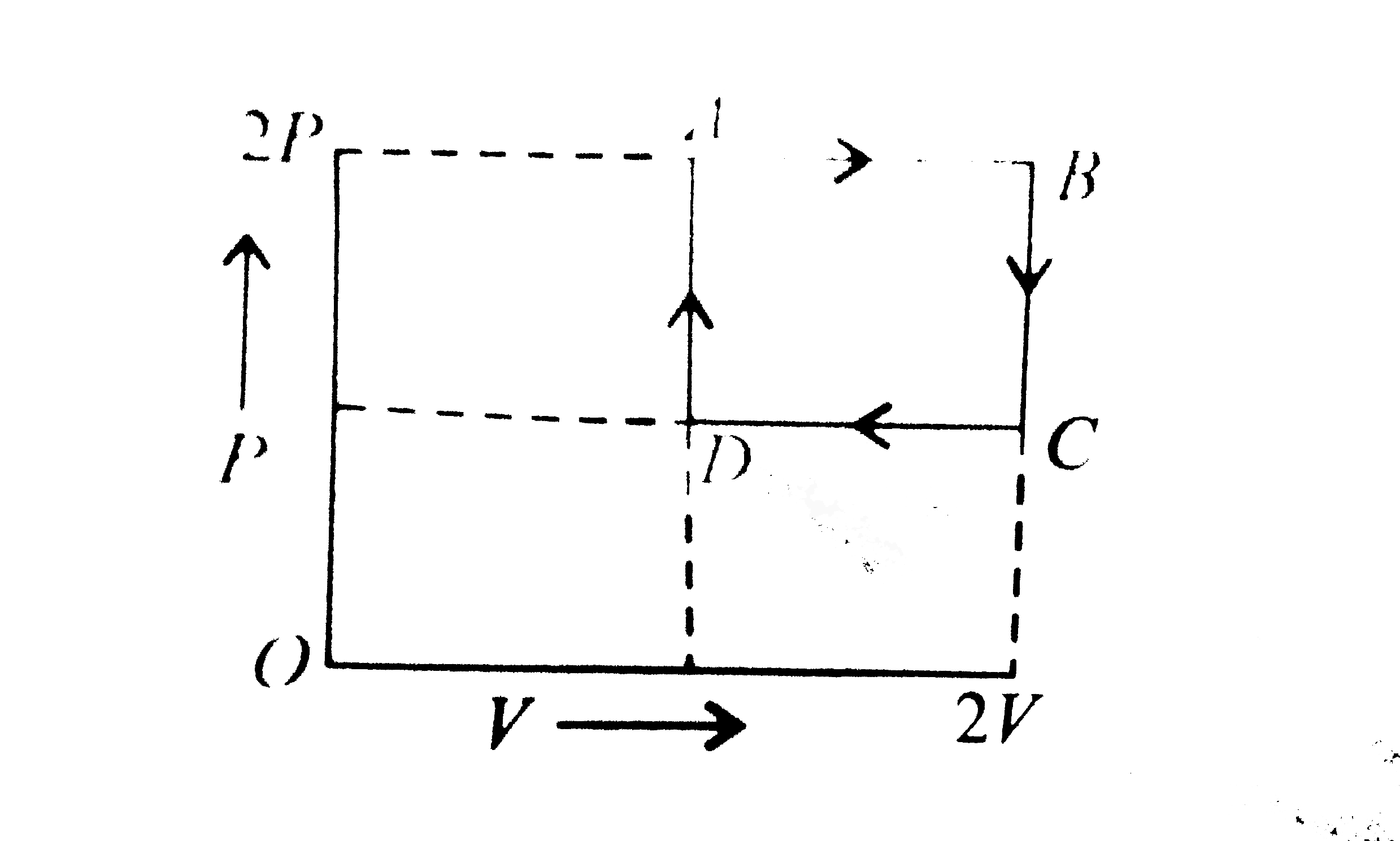
What would be the work done in state B→C?A−PVBPVC2PVDZeroThe state of a mole of an ideal gas changed from state A at pressure 2P and volume V follows four different processes and finally returns to initial state A reversibly as shown below in the graph. By intercepting the graph answer the following questions:
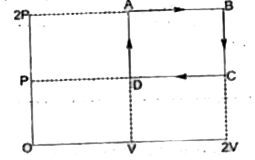
Which is the kind of process followed from state A to state B?Aisochoric expansionBisobaric expansionCisothermal reversible expansionDisothermal irreversible compression.
The state of a mole of an ideal gas changed from state A at pressure 2P and volume V follows four different processes and finally returns to initial state A reversibly as shown below in the graph. By interpreting the graph, answer the following questions.
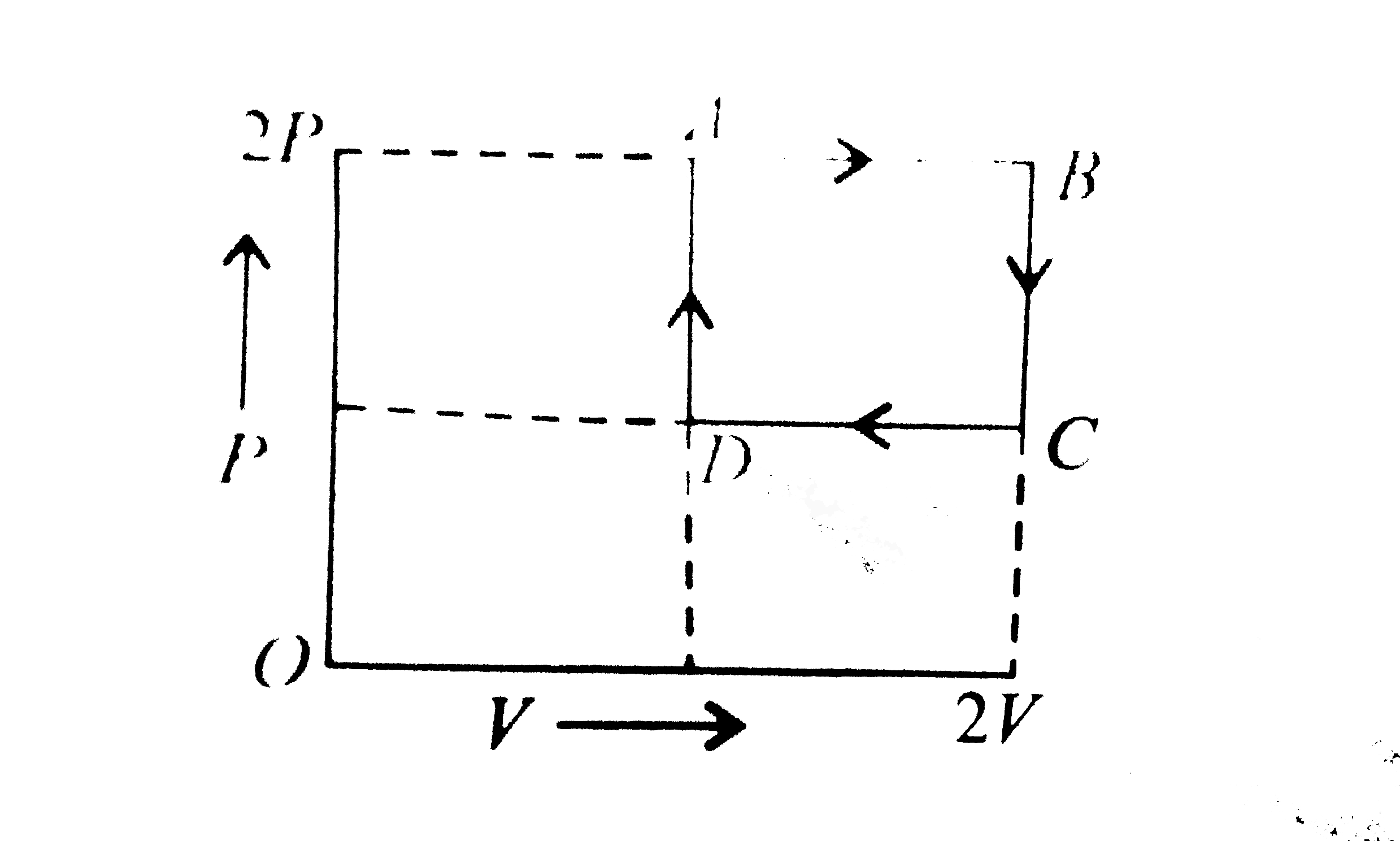
Which is the kind of process followed from state A to state, B?
View SolutionThe state of a mole of an ideal gas changed from state A at pressure 2P and volume V follows four different processes and finally returns to initial state A reversibly as shown below in the graph. By interpreting the graph, answer the following questions.

Which is the kind of process followed from state A to state, B?
View SolutionThe state of a mole of an ideal gas changed from state A at pressure 2P and volume V follows four different processes and finally returns to initial state A reversibly as shown below in the graph. By interpreting the graph, answer the following questions.

What would be the work done in state B→C?
View SolutionThe state of a mole of an ideal gas changed from state A at pressure 2P and volume V follows four different processes and finally returns to initial state A reversibly as shown below in the graph. By interpreting the graph, answer the following questions.
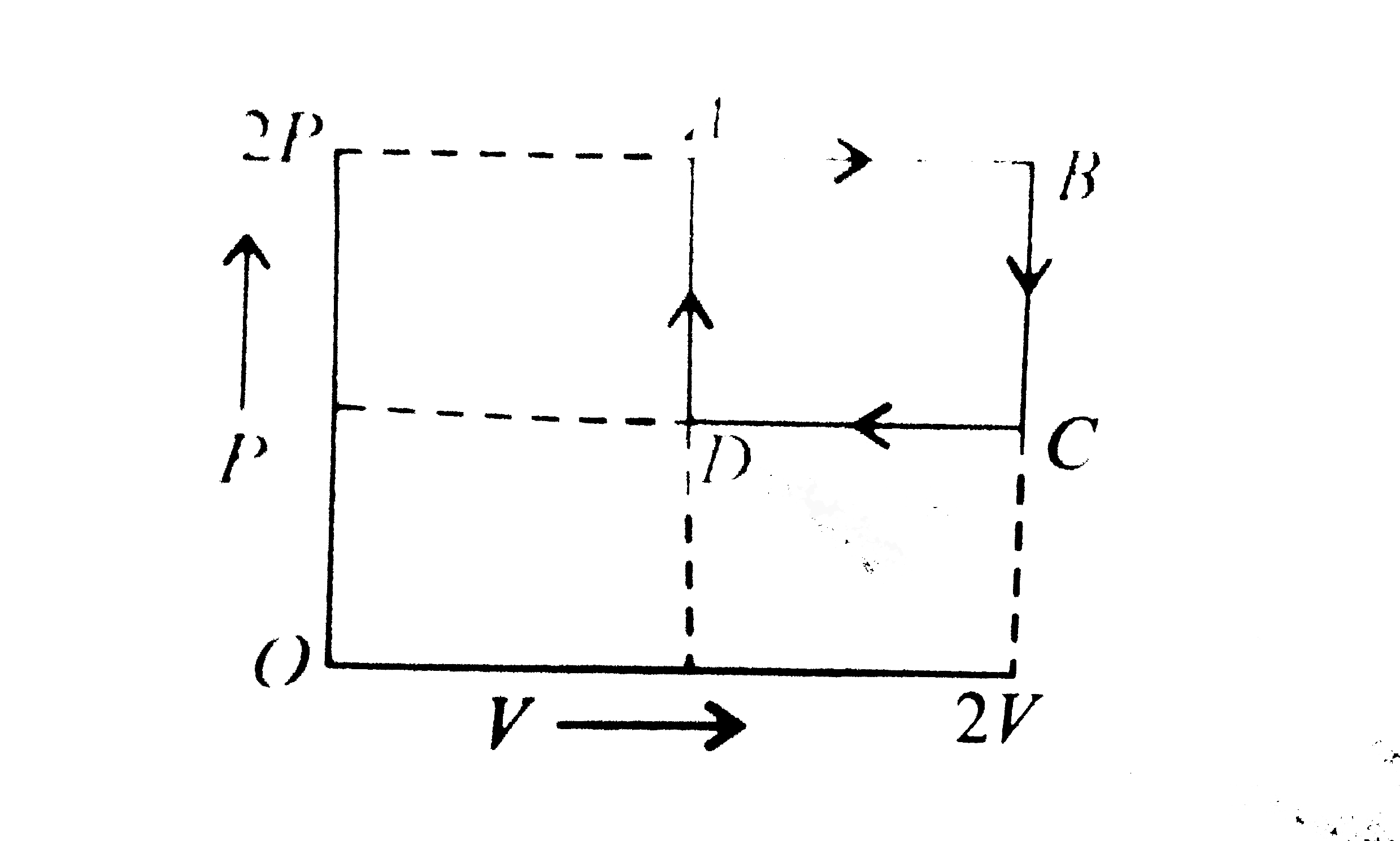
what would the be total work done by the gas?
View SolutionThe state of a mole of an ideal gas changed from state A at pressure 2P and volume V follows four different processes and finally returns to initial state A reversibly as shown below in the graph. By interpreting the graph, answer the following questions.

Which is the kind of process followed from state A to state, B?
View Solution
